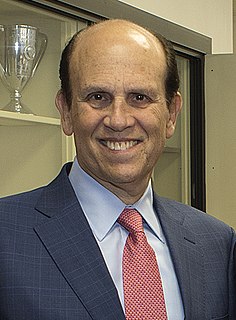A Quote by Lynda Resnick
Most Fortune 500 companies began as small start-ups whose entrepreneurial founders slowly developed the infrastructure, hired the staff, sourced manufacturers or built their own factory, and created distribution, sales, and marketing plans.
Related Quotes
Small and mid-sized companies in this country historically have been responsible for creating the overwhelming majority of new jobs in the private sector. One of the most-common misconceptions about our private enterprise system is that large companies, such as the Fortune 500, are integral to the process of job creation in this country. The truth is quite the opposite.
Often in companies, you'll see tensions between sales and marketing. Sales people will want to give discounts to clients because they often get paid a commission based on how much they sell. So they're always pushing to give discounts because that will increase sales. Marketing, however, is judged by overall profitability.
Last year, the journalist Malcolm Gladwell conducted a survey of chief executive officers of Fortune 500 companies for his book Blink. He discovered that while in the US population 14.5 per cent of all men are 6ft (1.83m) or taller, among CEOs of Fortune 500 companies the proportion is 58 per cent. And while 3.9 per cent of American adults are 6ft 2in or taller, almost a third of the CEOs were that tall.


































